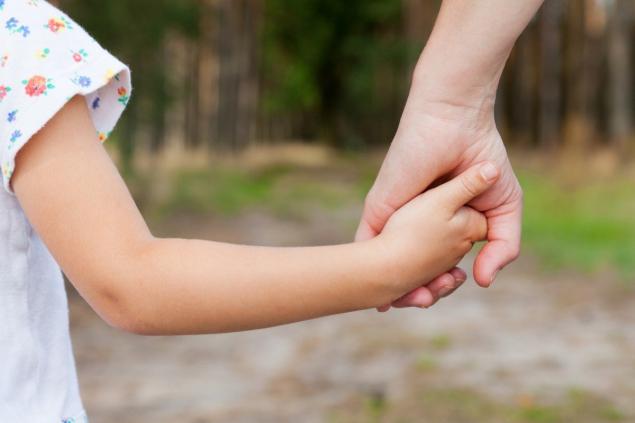169
Why children do nothing to spite and how to cope with first conflicts
Early childhood education It’s a real test for parents, especially if it’s their first experience. The problem is that the results of mistakes can manifest themselves over many years. This means that the educational process can no longer be adjusted.

Many aptly notice that a small child is like an alien creature that is not very interested in everything that is happening around. At the same time, parents are forced to learn how to understand his language and know his needs.
The first three years, when the child is not able to be independent, are especially difficult. And you need to remember that the child does nothing to spite the parents, and therefore his crying, screaming and whims have a reason. In this regard, parents should pay attention to 6 tips Lyudmila Petranovskaya, which will help make life easier.

Be for your own man the one who can always embrace, comfort, and accept his feelings. Let him learn, fear, protest, do stupid things. The world is imperfect, but with the help of parents, the child will learn to accept reality as it is.

Many aptly notice that a small child is like an alien creature that is not very interested in everything that is happening around. At the same time, parents are forced to learn how to understand his language and know his needs.
The first three years, when the child is not able to be independent, are especially difficult. And you need to remember that the child does nothing to spite the parents, and therefore his crying, screaming and whims have a reason. In this regard, parents should pay attention to 6 tips Lyudmila Petranovskaya, which will help make life easier.

- Don't be afraid of the baby screaming.
Screaming and smiling are the survival mechanisms of a child. Without the help of adults, the newborn is doomed, because he cannot move himself, is not able to find food or shelter. Therefore, if an adult who will take care of and protect you, everything is fine. If the adult is not around, the child is anxious. Without help, he cannot survive. Therefore, the only mechanism to call an adult is the cry. The child is not screaming and screaming because he wants to beat his parents’ nerves. He's just fighting for his life. Calls for those without whom he cannot survive.
As for the smile, it is a kind of reward for parental dedication. And if mom and dad did everything right, then in the second month they have a chance to see a smile on the baby’s face. A moment of euphoria that young parents will definitely want to share with loved ones.
- Don't wean yourself out of hand.
The first three months of a baby’s life are called the fourth trimester of pregnancy. And although the child is no longer in the stomach, it must be reported, and in the literal sense of the word. Therefore, one should ignore the erroneous belief that a newborn cannot often be picked up. It comes to the fact that the young mother suffers, listening to the cry of her child, but does not take him in his arms, because so taught grandmothers, they say, “you can not accustom to hands” and “the child is so manipulative”. In fact, this practice has dire consequences. And without shouting once or twice, a desperate child will really fall asleep from fatigue. But the belief that everything is useless and he is doomed will always haunt him.
But the kids, who were enough to pick up, by the age of two become more independent than their peers, who were afraid to “pamper”. The latter, on the contrary, become more capricious and demanding to the attention of adults.
It seems that without closing their need for full-term wear, they have acquired a chronic hunger for attachment, but no matter how much attention they receive at a later age, they can no longer be satiated.
- Don't make you walk in the arms of strangers.
If in the sixth month of life the child does not care who takes him in his arms, then at the age of one year he begins to avoid strangers. He can already keep visual images in his head, and therefore knows where mom and dad are, and where a stranger is. As a result, he creates a circle of people to whom there is a certain credit of trust, next to whom he is safe. Trying to please a talkative neighbor or a good friend, parents mercilessly break this children's installation. They scold him, make fun of him, force him to be polite. It's a big blow for the baby. But if the child spends a little time in the new company, and the new acquaintance behaves correctly, then the threat to the child will cease to see.
- Show that your child can count on you.
Although the baby becomes independent and can move freely, the same long-standing survival program tells him that it is impossible to go far from a familiar adult. And if he gets lost, the survival program is immediately activated – he will start crying and screaming until they come back for him. Such a sound beacon so that close people can find it faster. The child also begins to imitate the actions of adults. This is manifested in walking, the manner of speaking, interaction with the surrounding world. And how much he is willing to listen to loved ones is determined not by threats and lectures, but by the quality of affection. And the more a child is convinced that he can count on a particular person, the less he is influenced by other people.
- Argue right.
By the age of three, the child becomes especially moody, making life difficult for his mothers and fathers. There is disagreement between the child and his parents. By becoming more independent, the child thinks he can do anything. But parents, knowing the consequences, do not allow him to do everything he wants, limit him. Here it is most correct to skillfully argue and simultaneously teach the child to defend his opinion. But many choose to go the easier way - to punish and intimidate. Of course, the phrase "I'll give you to that uncle over there" will scare the baby, activate his survival program. But will this situation teach him much? Will he trust his parents as before?
- More comfort.
When a child is faced with another small failure, when he is scared or in pain, he goes to the parent - snuggles up, climbs into his arms. This helps the baby to calm down, to survive the problem. He's more vulnerable, he doesn't know how to deal with stress yet. And the help of a loved one is a real gift for him. But sometimes, instead of comforting and comforting, the parent shames, scolds, or even threatens. As a result, the child experiences great stress and realizes that he can count only on himself. It is difficult for him to cope, he is not yet ready, so such an experience traumatizes his psyche, which will definitely backfire in the future.
Be for your own man the one who can always embrace, comfort, and accept his feelings. Let him learn, fear, protest, do stupid things. The world is imperfect, but with the help of parents, the child will learn to accept reality as it is.





























